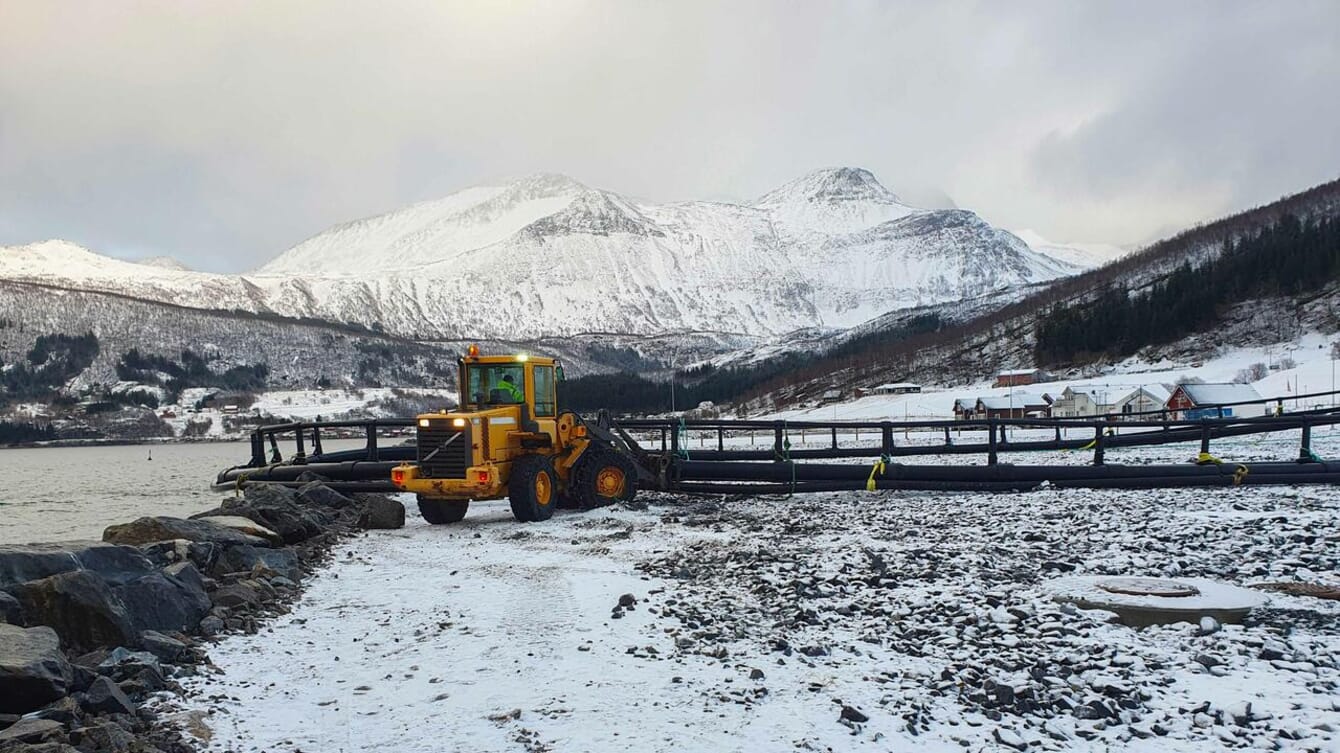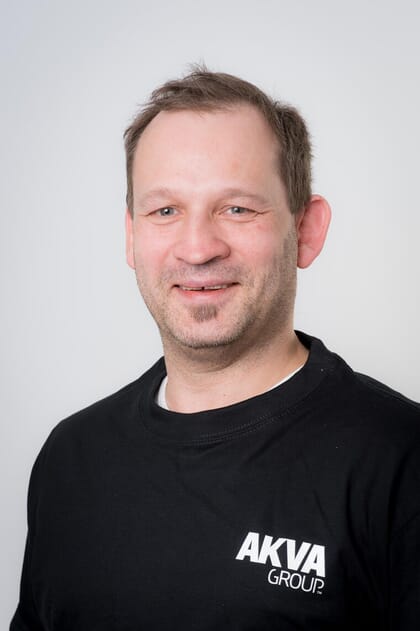
Up to 12,000 tonnes of plastic waste are generated annually from the aquaculture industry in Norway
Last week, Norwegian fish farmer Nova Sea landed used plastic pens in Aldersundet in Lurøy so Oceanize could cut the pens up and transport them to Rørvik. There, the plastic pens will be granulated in Oceanize's granulation plant, and then sent to Plasto and AKVA group in Mo i Rana to produce parts for a new pen.
"We are pioneering a better future. Nova Sea contributes with important raw materials to the project and the Norwegian Retailers' Environment Fund supports the project, which aims to increase the use of recycled plastic resources," says Dag Ove Antonsen, head of the project in AKVA group.

AKVA group has already used recycled plastic in the walkways on the pen, but this project will make it possible to produce the entire pen based on recycled plastic from used pens
Due to material quality requirements regulated by a technical standard (NS 9415 (2009)), virgin plastic is mainly used in load-bearing structures in the pen. The project will challenge this standard, not by changing the requirements, but by proving that recycled plastic from a used pen has the qualities to meet the requirements.
AKVA group has already used recycled plastic in the walkways on the pen, but this project will make it possible to produce the entire pen based on recycled plastic from used pens.
Up to 12,000 tonnes of plastic waste are generated annually from the aquaculture industry in Norway and plastic resources are mostly reused or collected and recycled. The potential climate savings from national management of plastic waste are up to 50 million kilograms of CO₂ by preventing, among other things, combustion and export of resources.
"Pens are not currently a major littering problem, but there is great potential in using plastic in new pens. Here we will achieve short, national value chains as the project participants are all established in Norway. In this respect, it is optimal to have access to used pens that we can use in the project," says Dag Ove Antonsen.




